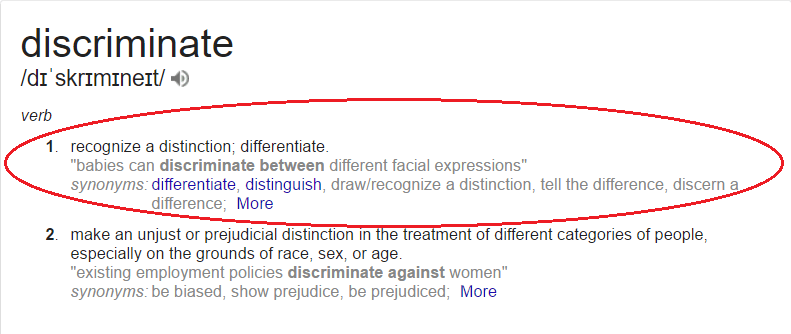 Unfettered immigration and open borders is problematic in the same way that an arranged marriage is problematic. It forces two parties to cohabitate together, rather than allowing them to voluntarily choose to be with those they are most attracted to and aligned with. Like an arranged (forced) marriage, forcing cultural integration is a violation of the non-aggression principle, and limits the individual’s opportunity for voluntary interactions in their home regions. True freedom does not infringe upon the basic rights of others, rather it empowers those basic rights.
Unfettered immigration and open borders is problematic in the same way that an arranged marriage is problematic. It forces two parties to cohabitate together, rather than allowing them to voluntarily choose to be with those they are most attracted to and aligned with. Like an arranged (forced) marriage, forcing cultural integration is a violation of the non-aggression principle, and limits the individual’s opportunity for voluntary interactions in their home regions. True freedom does not infringe upon the basic rights of others, rather it empowers those basic rights.
This raises the question about who enforces our borders, and should it be the government? We do not feel that closed borders implies the need for a government enforcer, as the legitimacy of the institution of government is called into question for their historical tendency to violate the non-aggression principle, as they perpetually use force and coercion on their regional populations, as well as their neighboring regions. Open / closed borders can and should be discussed free from the belief in State sanctioned authority and coercion. Inferring that all borders are bad because the government currently manages all borders is the generalization fallacy, as it throws away the baby (borders) with the bathwater (government & statism).
There is an intellectual, emotional, and energetic component to this discussion as well, as we need the capacity to enforce our borders and boundaries based on internal character traits, and not on superficial external traits. We need to be fully empowered to hold people and groups accountable for attempting to cross our personal boundaries—something we are currently still unable to do. Even though we do not yet have the full capacity to hold individuals and groups accountable for their violations of the non-aggression principle, it is something that Voluntaryists are actively working towards.
Overall, I am a very discriminatory person, as I discriminate (differentiate and discern) between who I will and will not voluntarily interact with based on my alignment with their character and internal nature. While certain cultures and religions may be breeding grounds for various poor character traits, it is only a general rule to keep in mind in the differentiation process, as exceptions always seem to arise. It is important that we actively refine our discernment, so that we can better discriminate based on a person’s character and values, and less on superficial traits such as their race, religion, class, gender, or sexuality. Unfortunately, many people fail to discriminate character at all, or conversely, positively or negatively discriminate solely based on race, religion, class, gender, or sexuality. A failure to actively discriminate between upright and poor character traits opens us up to all kinds of predatory and parasitic conditions, while discriminating solely on superficial grounds closes us down to interactions that could bring value and growth into our lives.
It’s not that discrimination is bad, it’s that superficial discrimination is bad. Indeed, it is our duty to discriminate against poor character traits and behaviors, and to hold such people accountable when they infringe upon our personal space.
Additionally, it is our perspective that fully wide open borders only benefits the globalists who wish to destroy property rights by forcing cultural integration, and that open borders is more violent on a freedom loving people than maintaining secure, limited access borders. Within the context of a stateless society, wide open borders is anarcho-socialism (leftist anarchists who do not hold to the non-aggression principle, and hold a collectivist ideology) and pushes equity, while limited borders is based in the anarcho-capitalist’s tenet of equality of opportunity, which mandates that certain intellectual and behavioral standards are met prior to being granted access into the community. Not everyone is entitled to our person or property, nor are they entitled to our group’s and/or community’s property, and while the right to self-defense of our person and property is not a violation of the non-aggression principle, the forced integration of cultures not aligned with our freedoms are a blatant violation.
Lastly, there is a psychological aspect to this that must be addressed. Patterns scale, from micro to macro, which is from individuals to groups—as groups are merely a collection of individuals. This is also called correspondence, and is one of the Seven Hermetic Principles, where what is outside of a person is a reflection of what is inside, and a group will act in accordance with how individual members believe and behave. Those with a Statist mindset will create, reinforce, and operate in a Statist society with external authorities ruling over them, while those with a voluntary mindset will create, reinforce, and operate in a Voluntary society where each individual is responsible enough to exercise self-rule.
Correspondence connects to the concept and purpose of psychological boundaries, and how they relate to the individual, and thus to the group, community, and nation. A boundary is a dividing line that clearly marks what is and is not our responsibility in relationship to ourselves and those around us, and when we lack a clear understanding of our responsibility to ourselves and others, we tend to lose ourselves in those around us, and forget our own basic needs. Without a clear understanding of our boundaries, we get walked on, or we walk on others, but with a clear understanding of our responsibilities, we are able to stand in our personal power, while still respecting the rights and personal space of those around us. A collection of individuals with poor personal boundaries will form a group with poor boundaries, while a collection of individuals with clearly identified and enforceable personal boundaries will form a group with clearly identifiable and enforceable personal boundaries.
With this said, is it healthy to have psychological boundaries? Why or why not? Should we be allowed to have boundaries around our homes? Why or why not? If it is OK to have boundaries (fences) around ourselves and our property, what about a fence around our voluntary communities? Is that still reasonable? Now, what about a grouping of communities that voluntarily work together, is it OK for them to put a fence around their grouping of communities? Why or why not? Do you see where we’re going with this? Personal boundaries, aka fences/walls, are not a black and white issue, and need to be addressed in a multilogical manner that considers their psychological necessity and ramifications. Any discussion about protective boundaries as a national border needs to consider the role of healthy psychological boundaries, and how they scale from individuals to families, to communities, to groups of communities, and beyond that—to nations.
